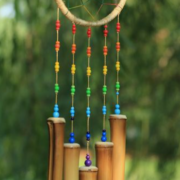Most light sockets are still “Edison base,” thus, if the floodlight socket is the same as a standard light bulb, there should be no issue.
Sockets have a maximum wattage rating, normally branded or imprinted on the device. Plastic sockets normally have a maximum power rating of 60 watts.
Porcelain sockets are used in higher wattage sockets. It is primarily about the ability of the light bulb to handle the extreme heat generated during the entire process of the mission.
Things to keep in mind while using light bulb:
- Depending on the fitting, only a specific quantity of heat can be safely dissipated (usually marked as maximum wattage)
- Certain bulbs contain a mirror or other device that concentrates light and heat. If this happens to be a sensitive section of the fitting, you could be in for a lot of trouble.
- 12V G10 Halogen lights are especially effective in dissipating heat from the front (a 50W bulb can start wood burning from more than 15cm).
- several hardware stores are having a line of these things set up so you could see how they appeared; next to it was a box with a line of burnt-out holes nearly matching the display – obviously, someone had positioned the box in front of the lights!
- If a fitting is meant for use with specific bulbs, we would only use those bulbs or a bulb with an order of magnitude less wattage (Example: substitute an LED bulb for an incandescent fitting). Always adhere to the maximum wattage guidelines.
Regular Vs Floodlights
With ongoing technological improvements, one of the most remarkable patterns is the supremacy of a technology that becomes widely adopted initially. Like the QWERTY keyboard and fossil fuels, the incandescent lamp has been around for over a century, contributing to its dominance. New technologies, such as floodlighting, exist now, although they are still struggling rivals when compared to older ones.
Lifespan
In terms of longevity, there is no comparison between the two types of illumination. Incandescent lamps are easily outperformed by floodlights. Thomas Edison’s first 19th-century incandescent light lasted up to 1,000 hours. Bulbs have not gotten much better in recent years, with the greatest ones only lasting 2,000 hours. Depending on the type of gas used, floodlights can last up to 24,000 hours.
Uses
It is due to their functions that are so dissimilar, incandescent light bulbs are cousins, not competitors, to floodlights, commonly known as high-intensity discharge or HID lighting. The incandescent bulb was formerly ubiquitous, but it is now limited to small, enclosed spaces such as homes, desks, and lamp lighting. HID lighting is powerful and has a long range of illumination.
Efficiency
HID lamp technology is one of the world’s most energy-efficient lighting options. According to the US Department of Energy, compared to an incandescent bulb, it is over 90 percent more efficient. Although the light from an HID lamp is brighter, the Color Rendition Index – a measure of how lighting compares to natural sunlight – is low compared to incandescent lighting.
Structure
In addition, the underlying functioning – the technique they create light – varies from one to the next. Regular lighting is rather simple, and it works by delivering electricity into the bulb, which causes a tungsten filament to glow. Light is produced by charging electrons in gases in an arc tube in high-intensity (HID) lighting. The arc tube is enclosed in a vacuum.
Conclusion
We have in the above article clearly stated the methodology and technique of whether we can place a regular light bulb on a floodlight socket or not. We have also given information about ring spotlight vs. floodlight which explains the difference between the two of these light bulbs. However, the final choice is yours to grab the information and choose wisely.














Comments